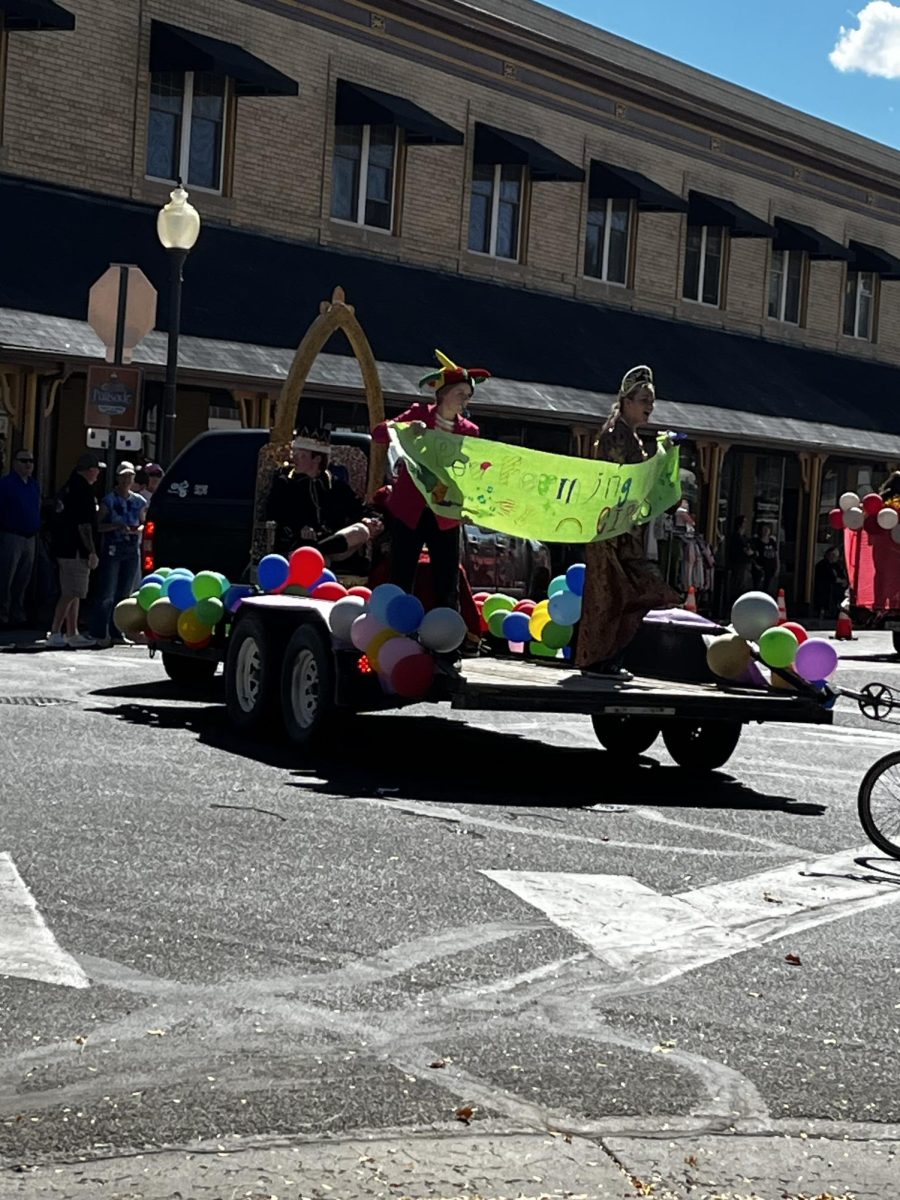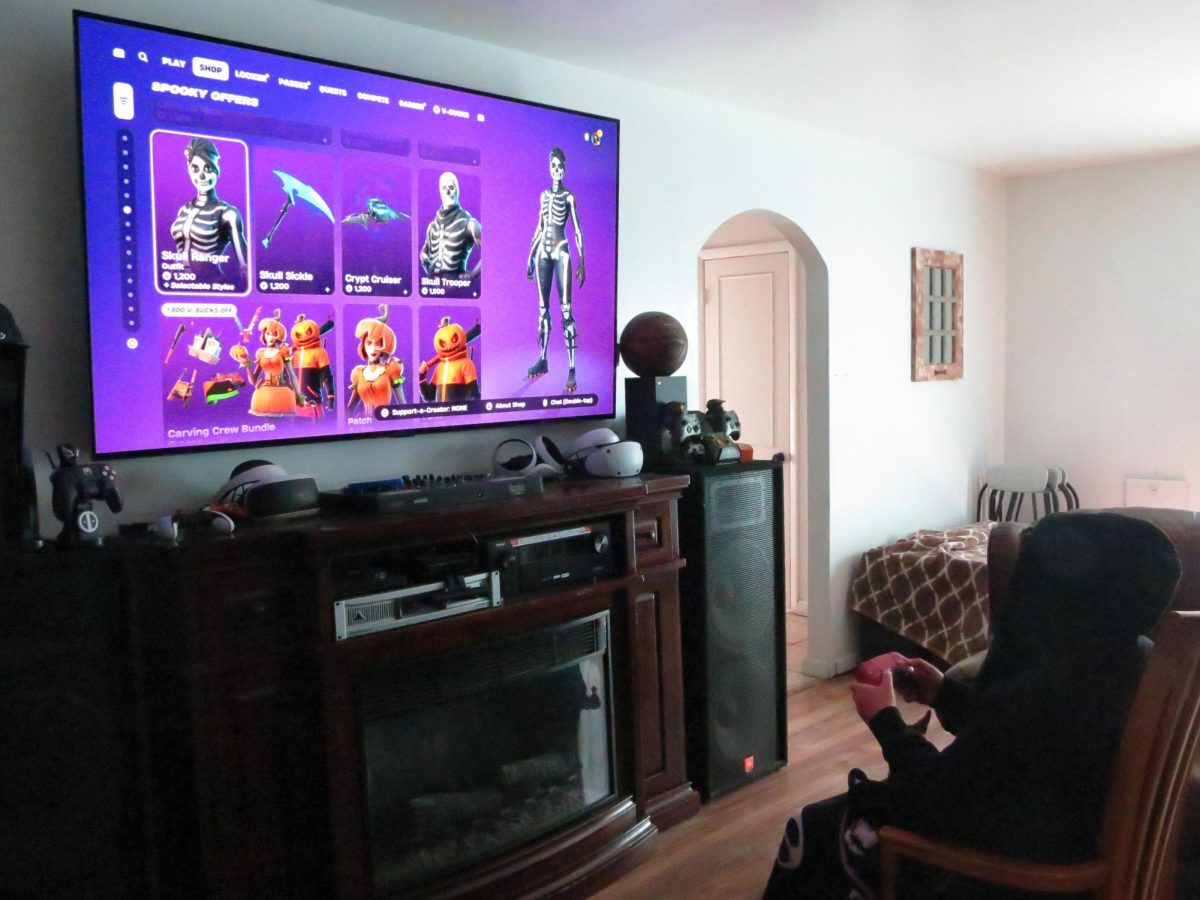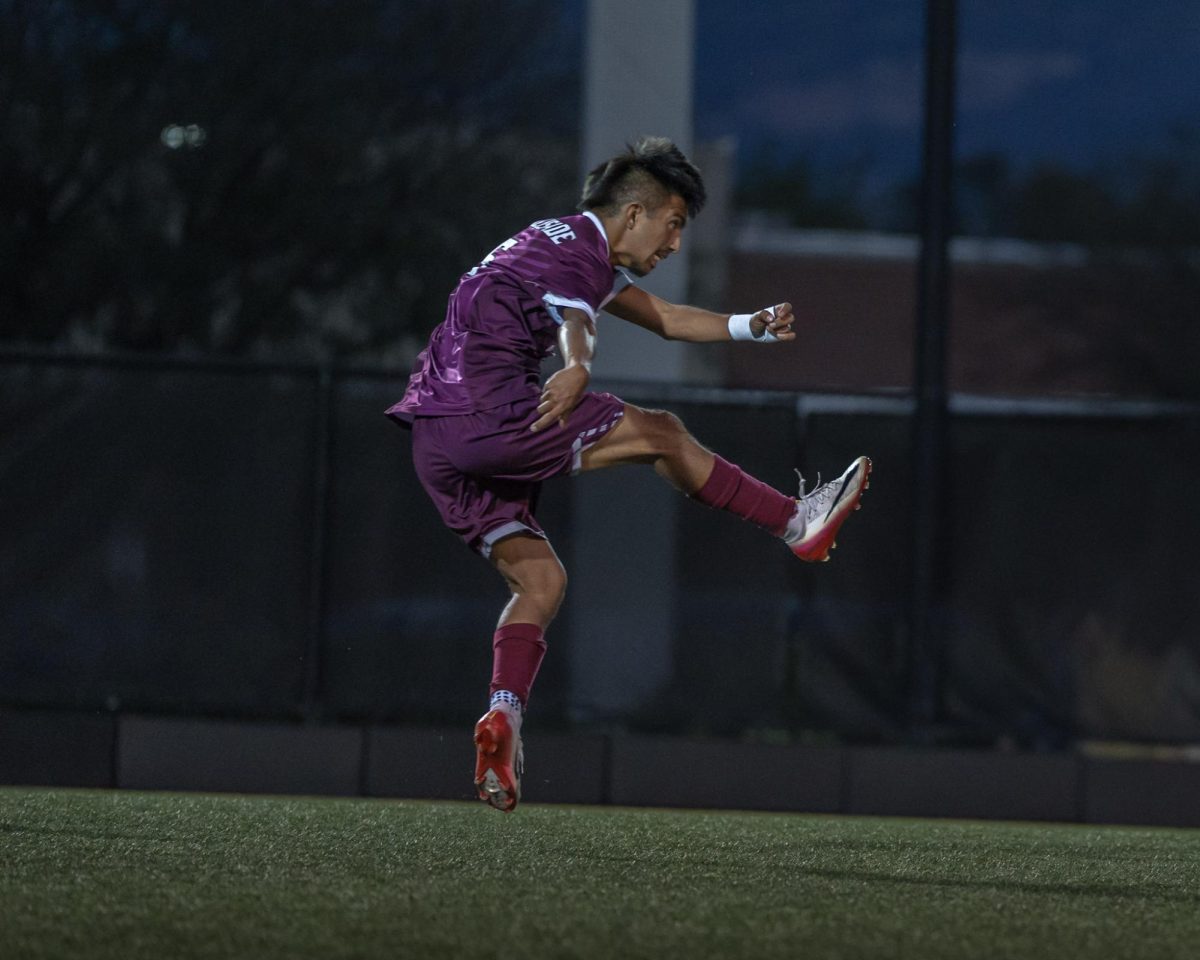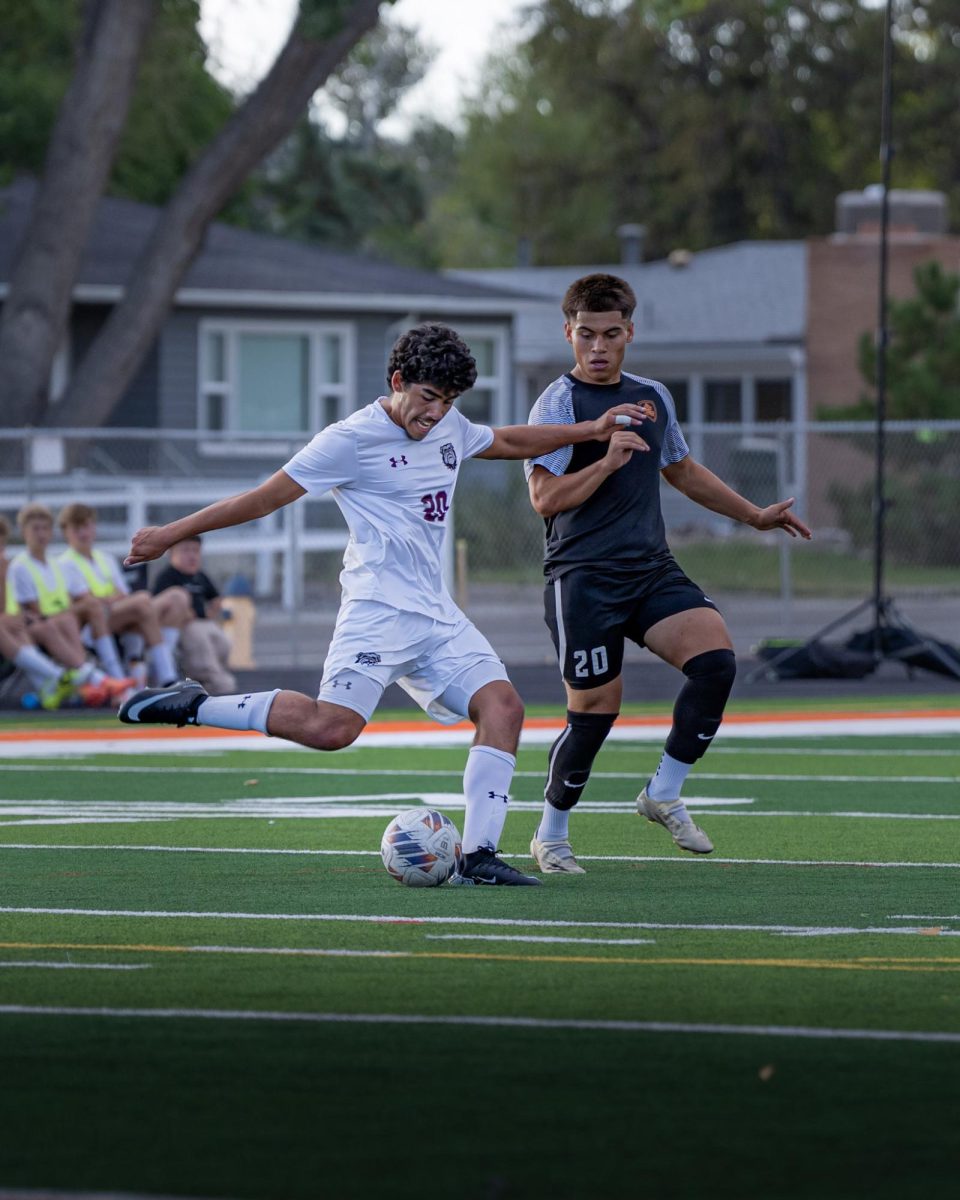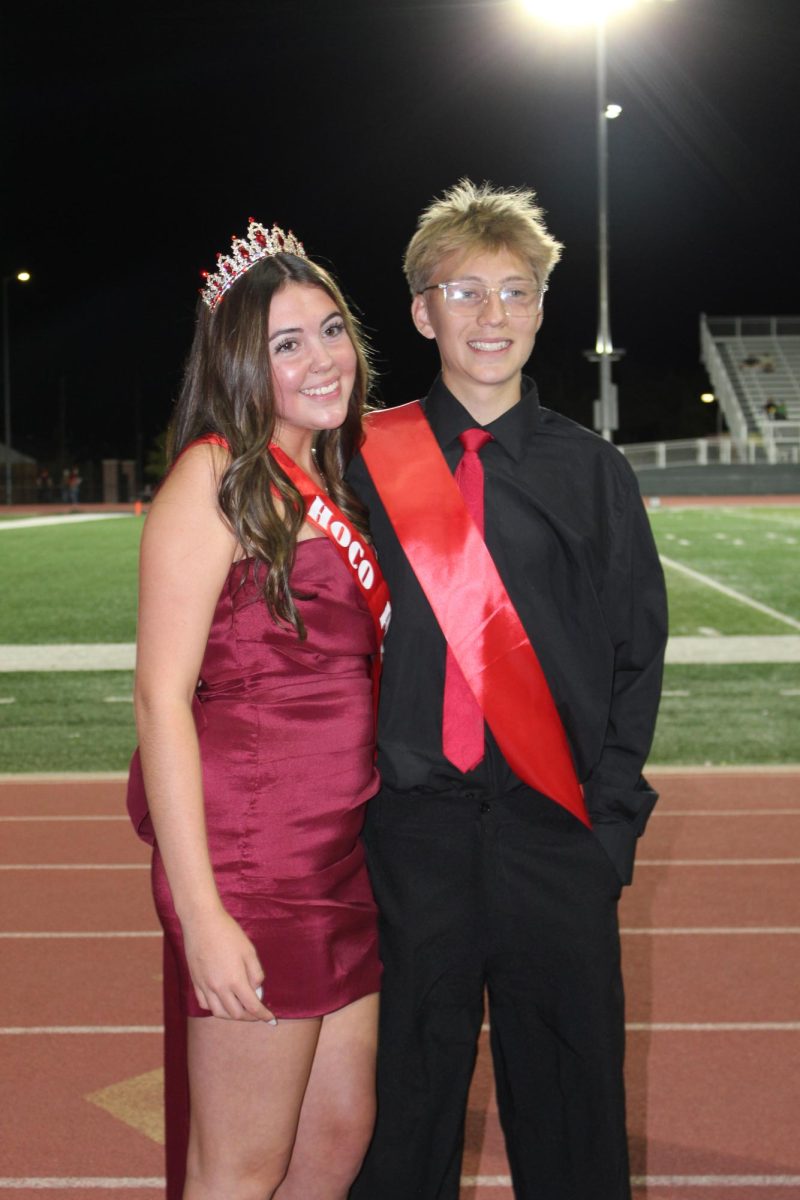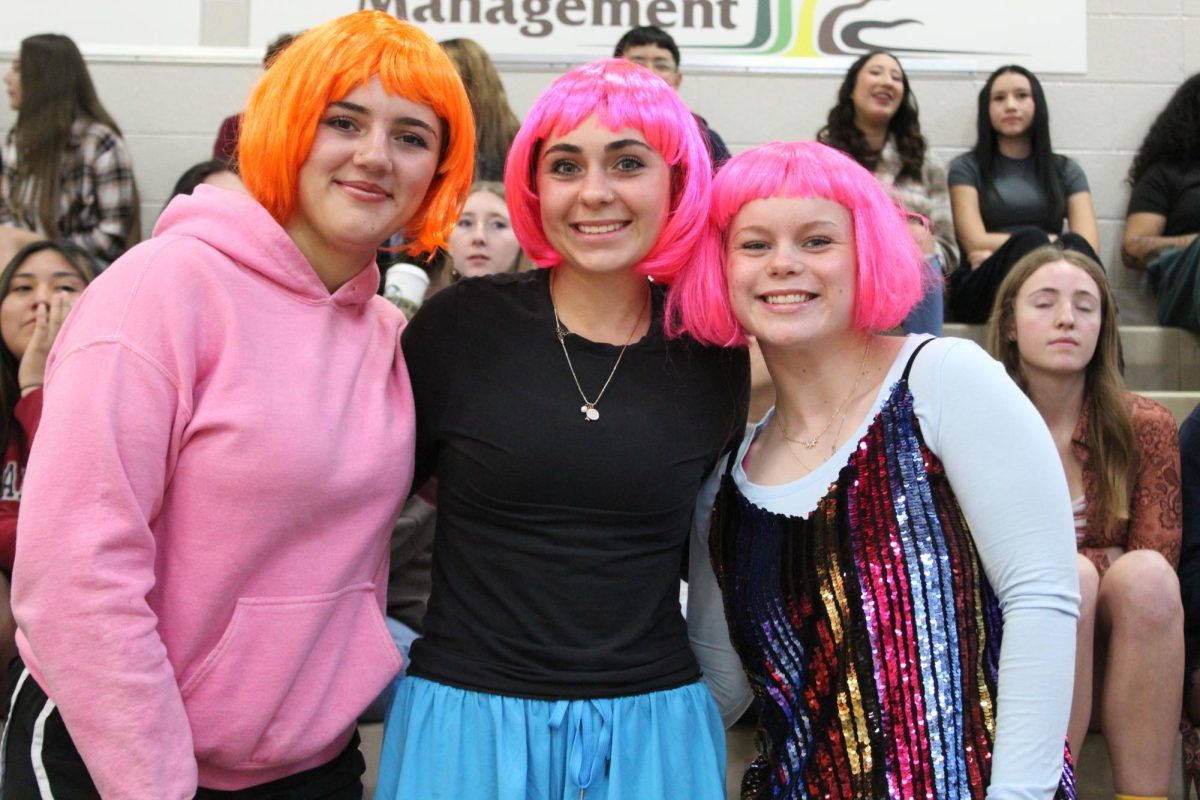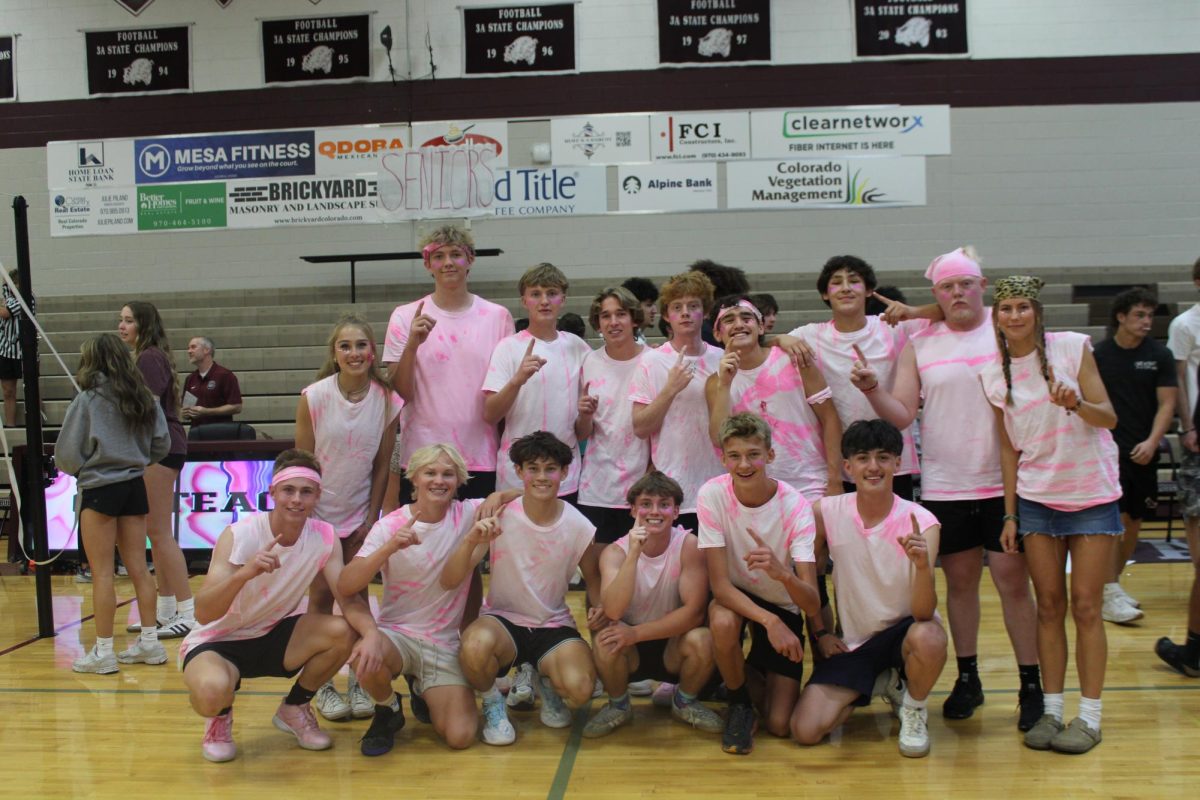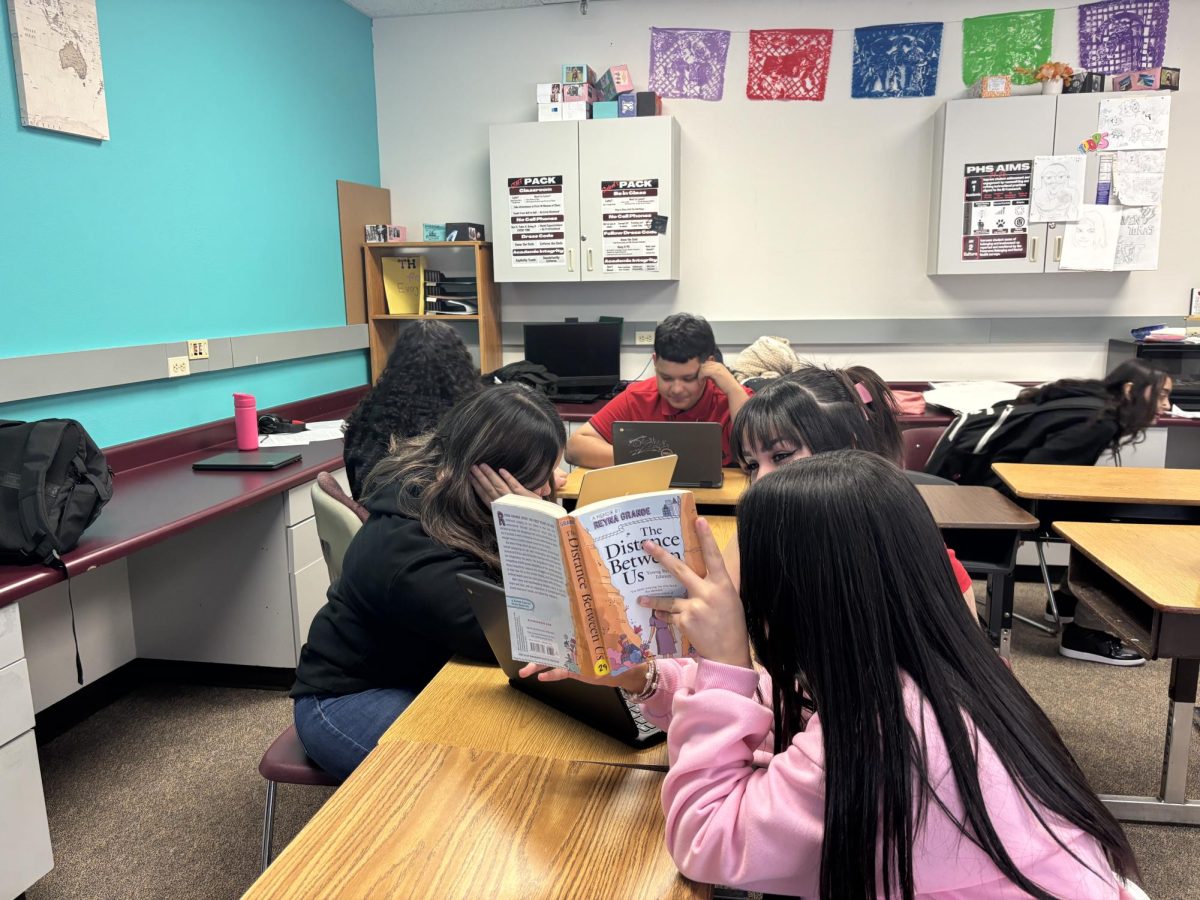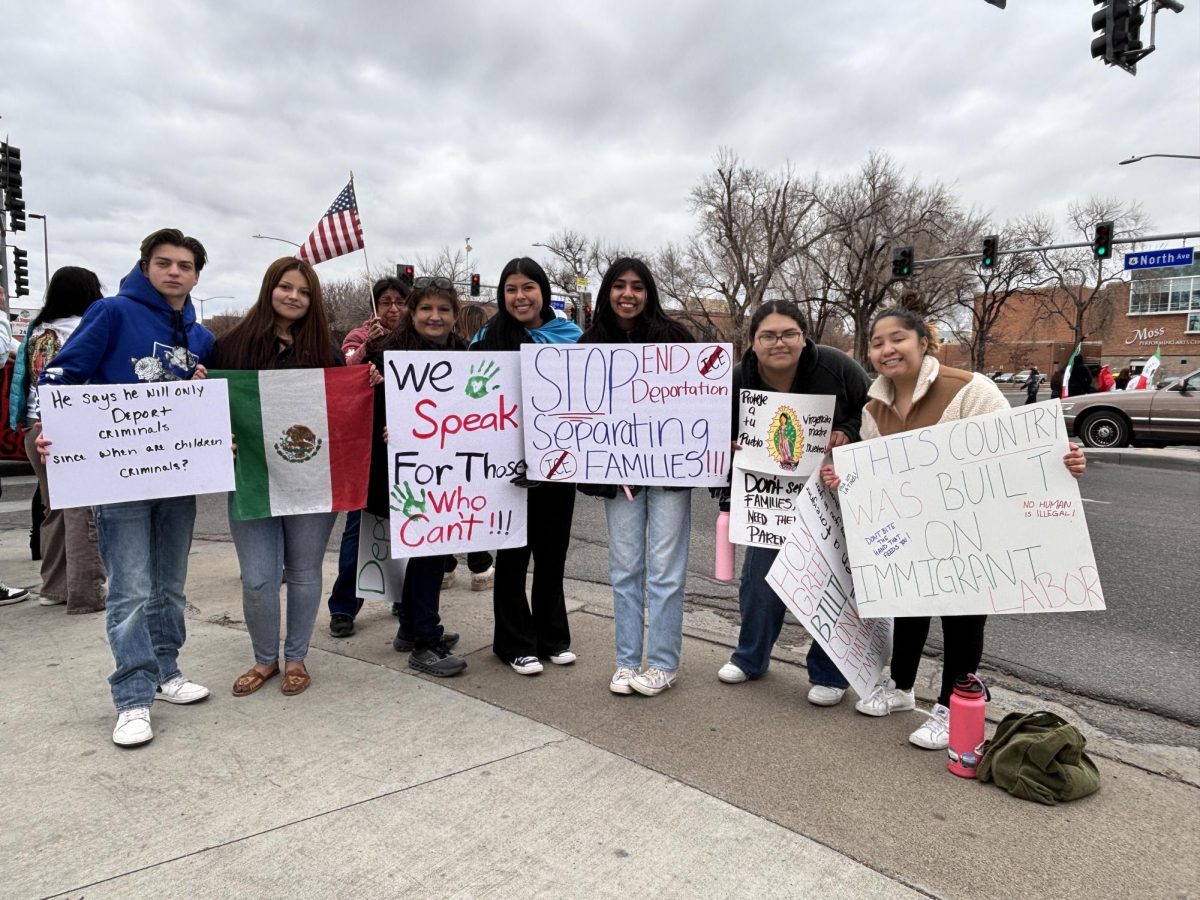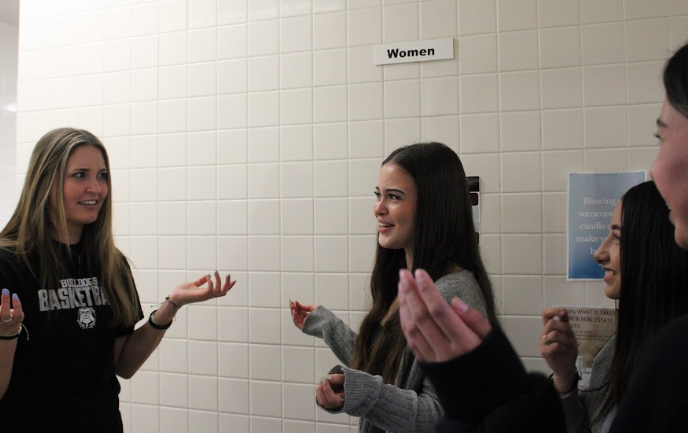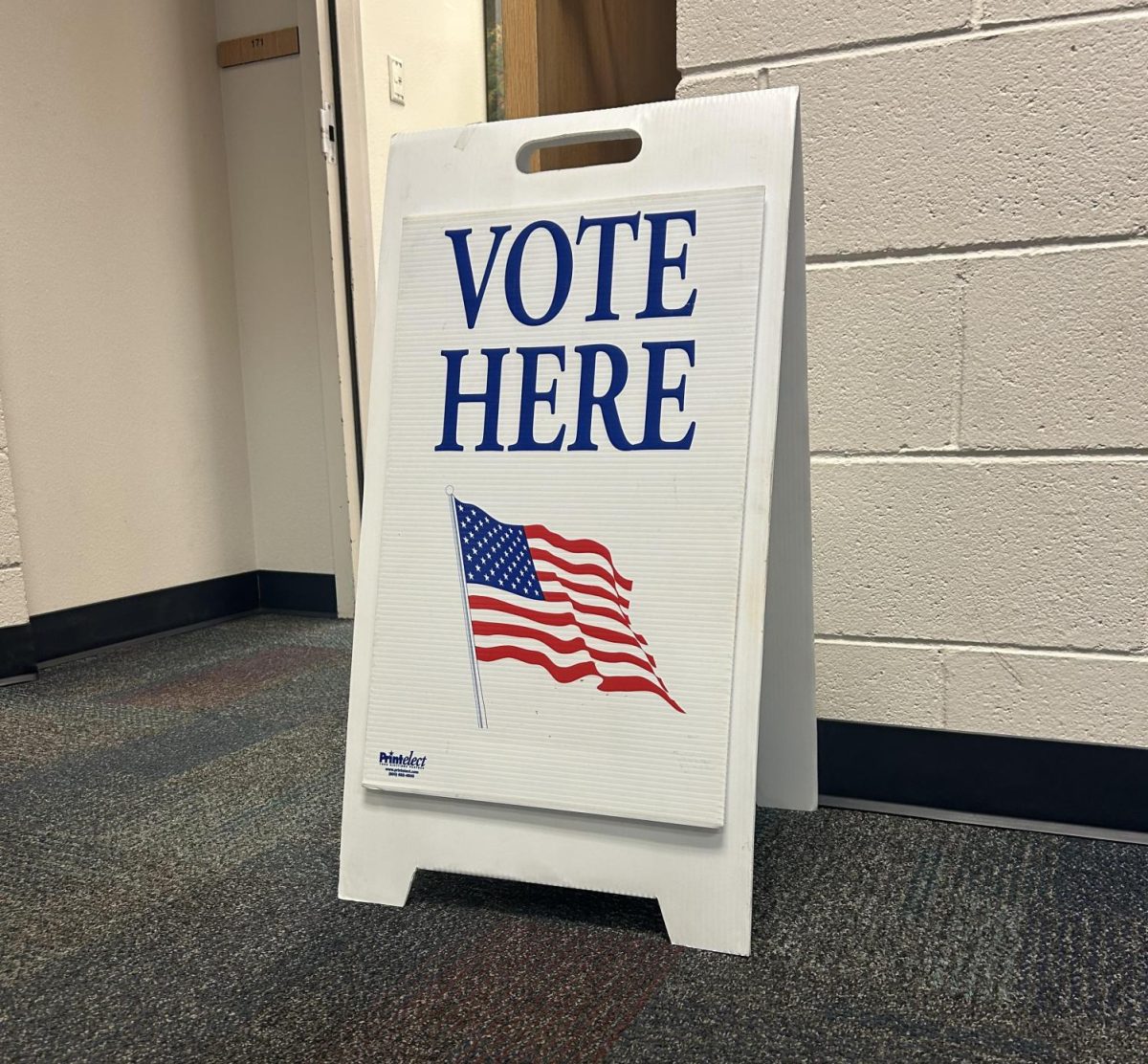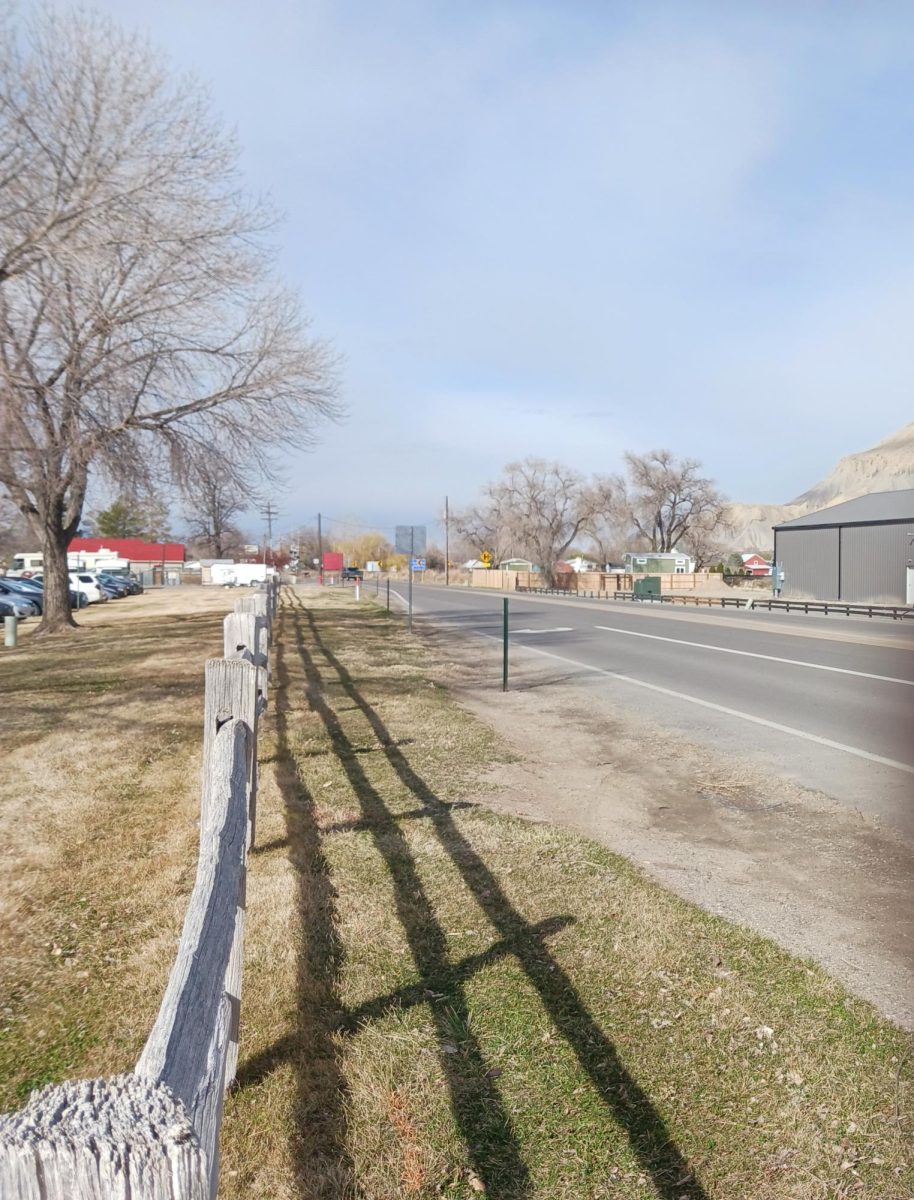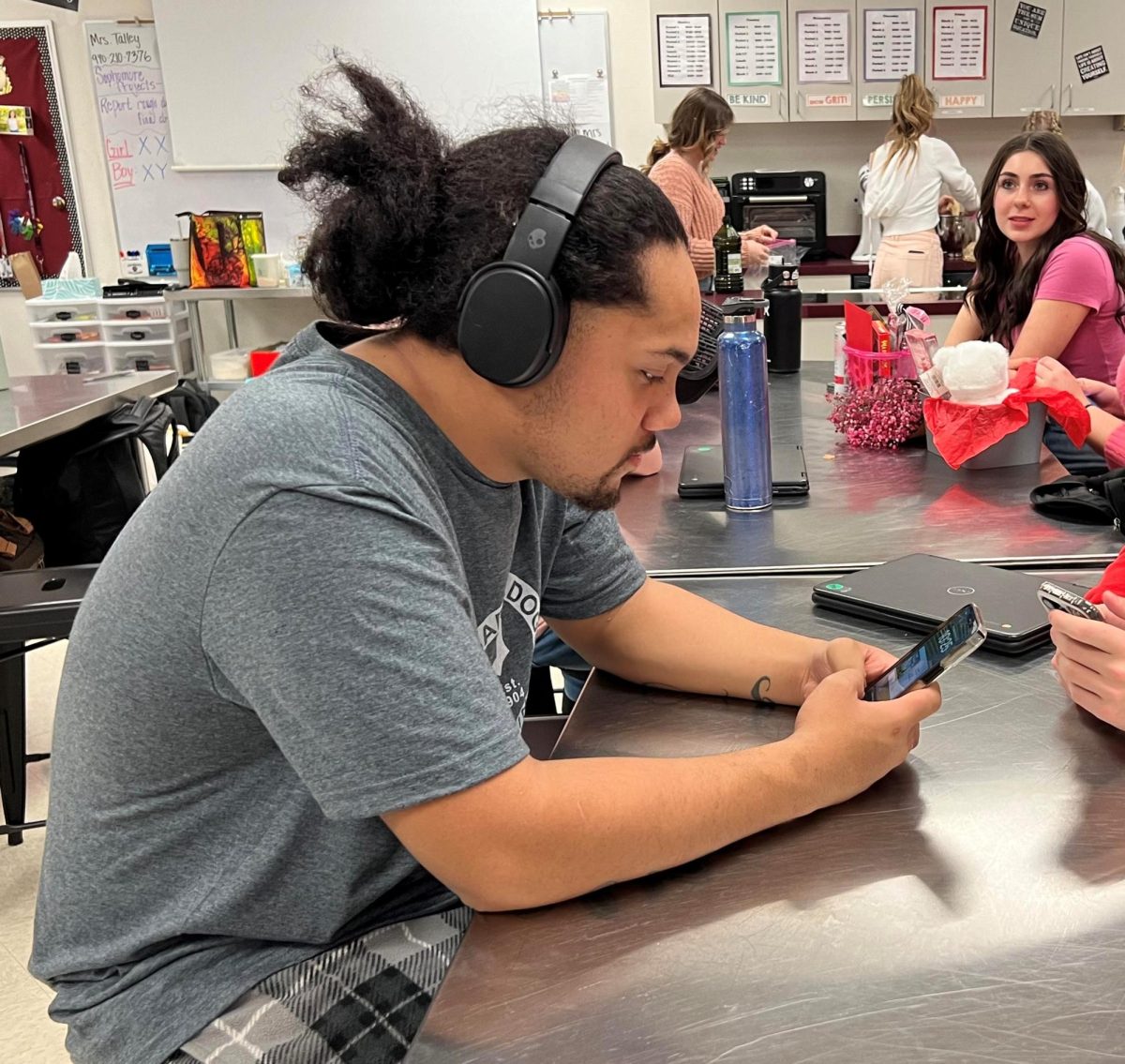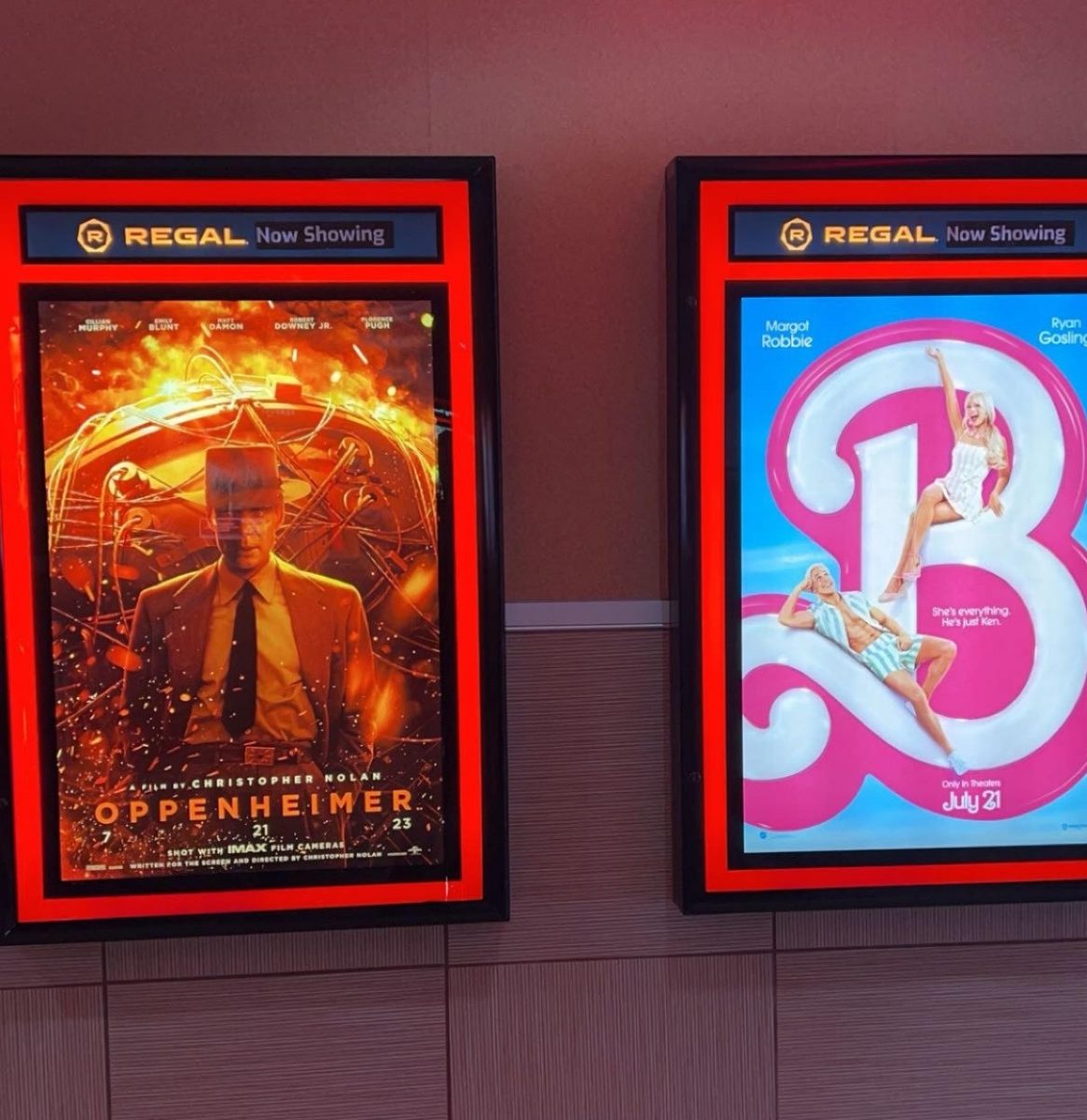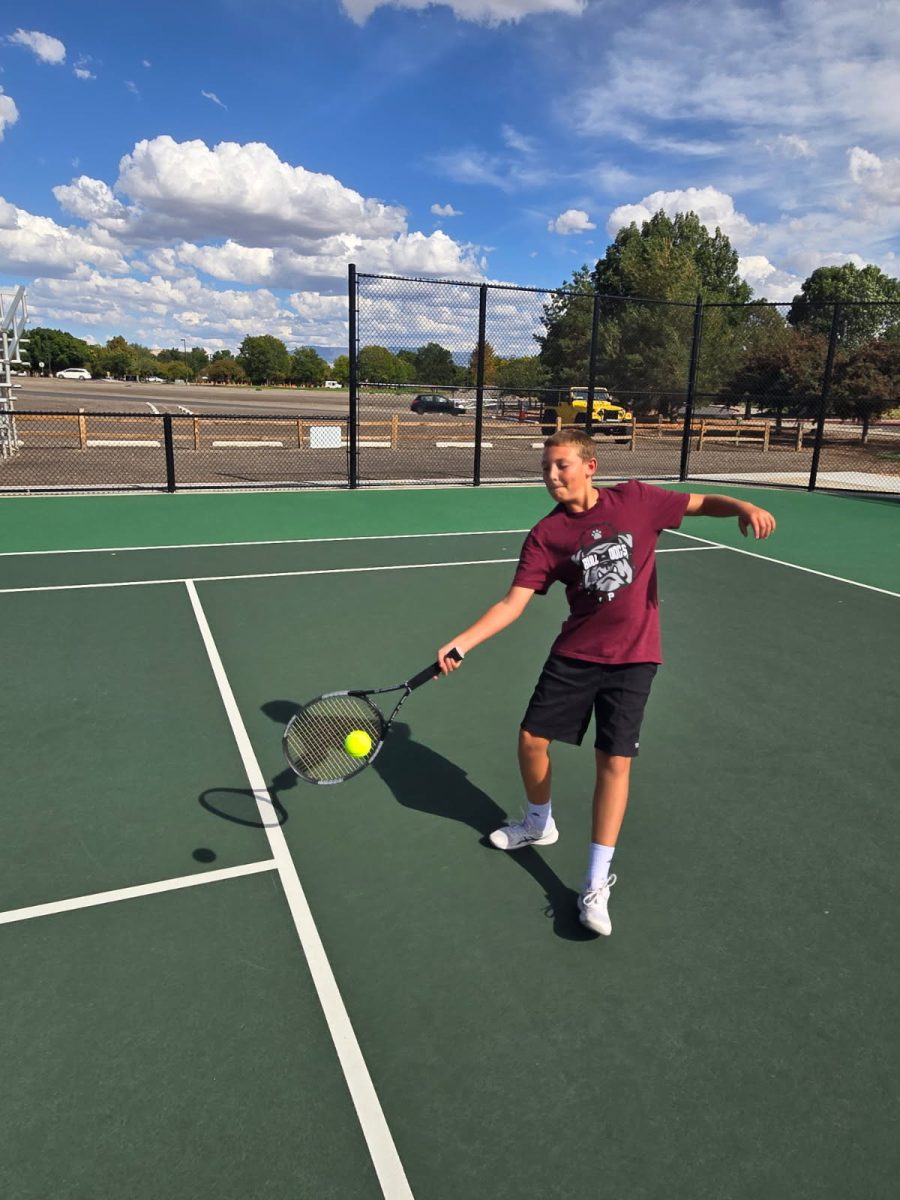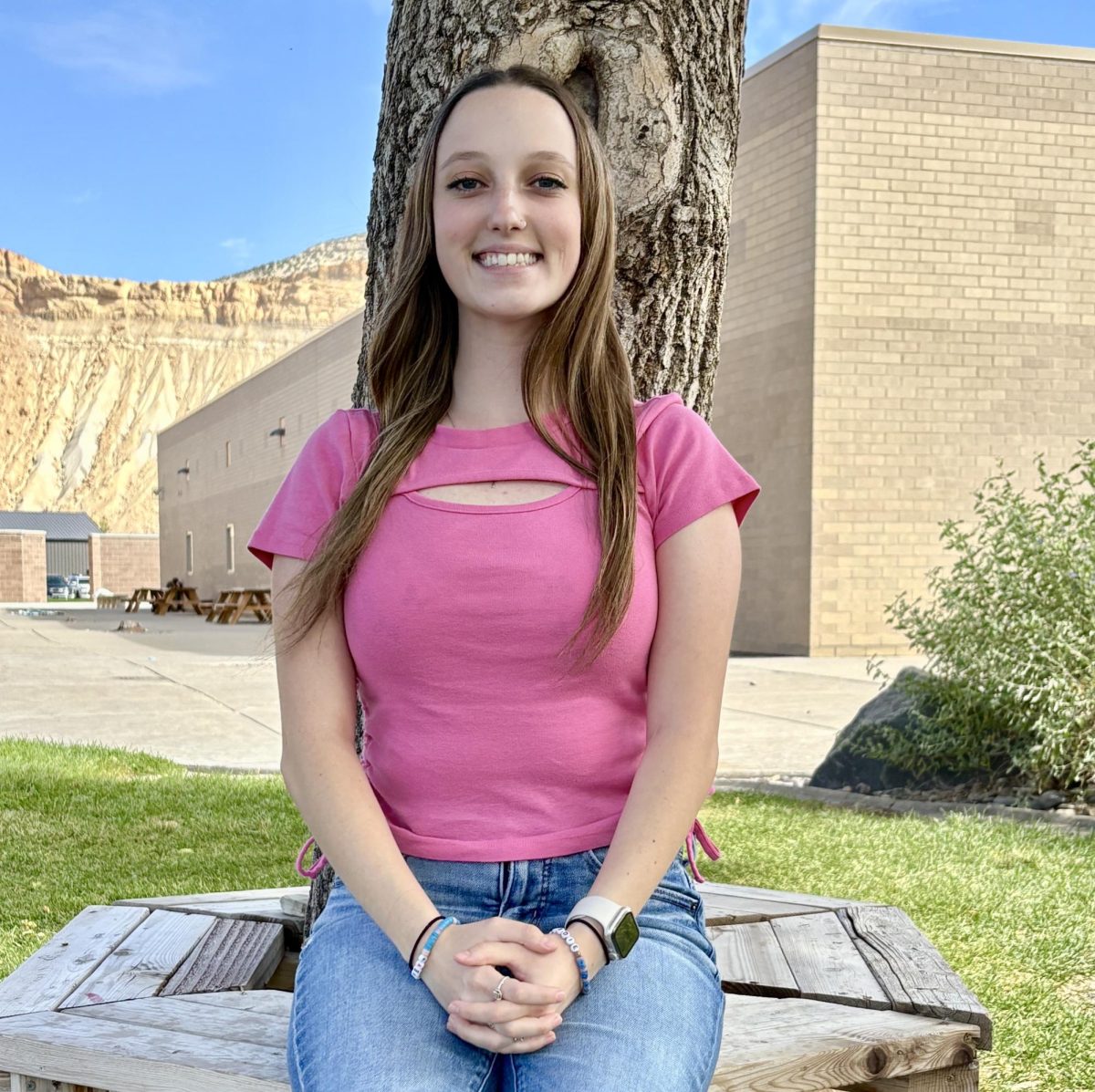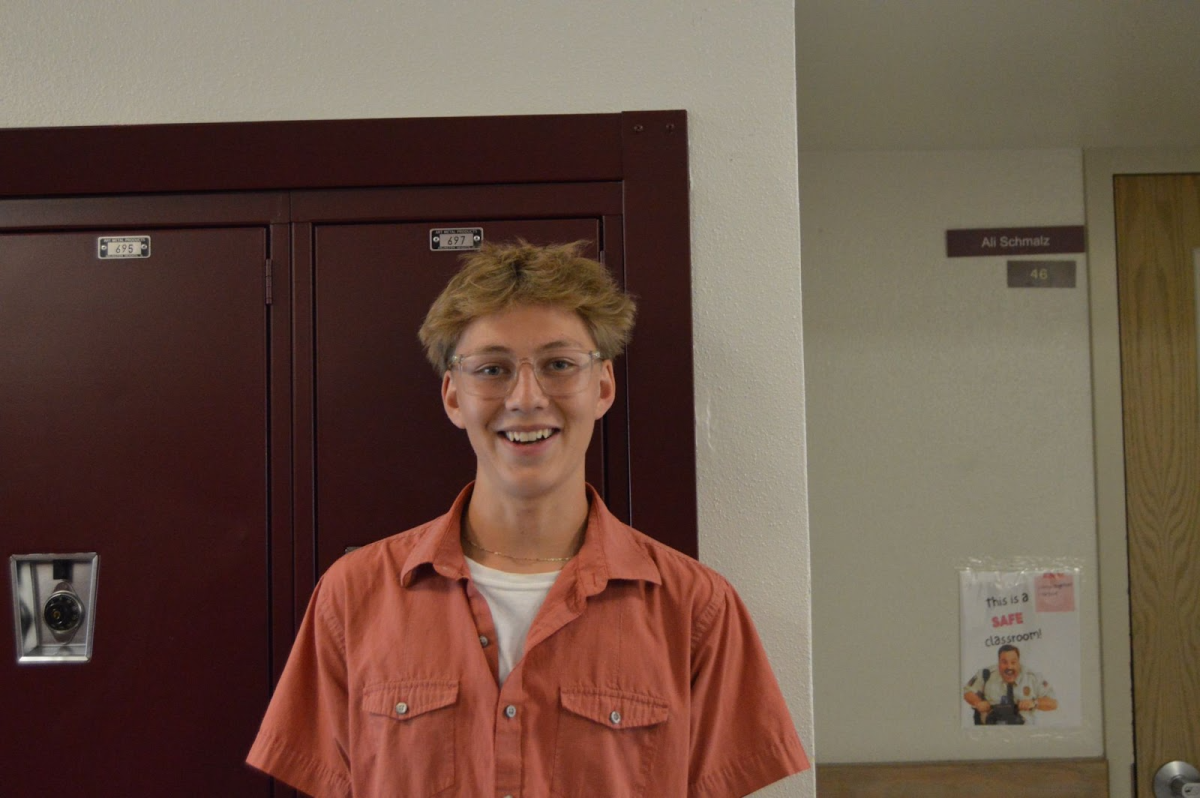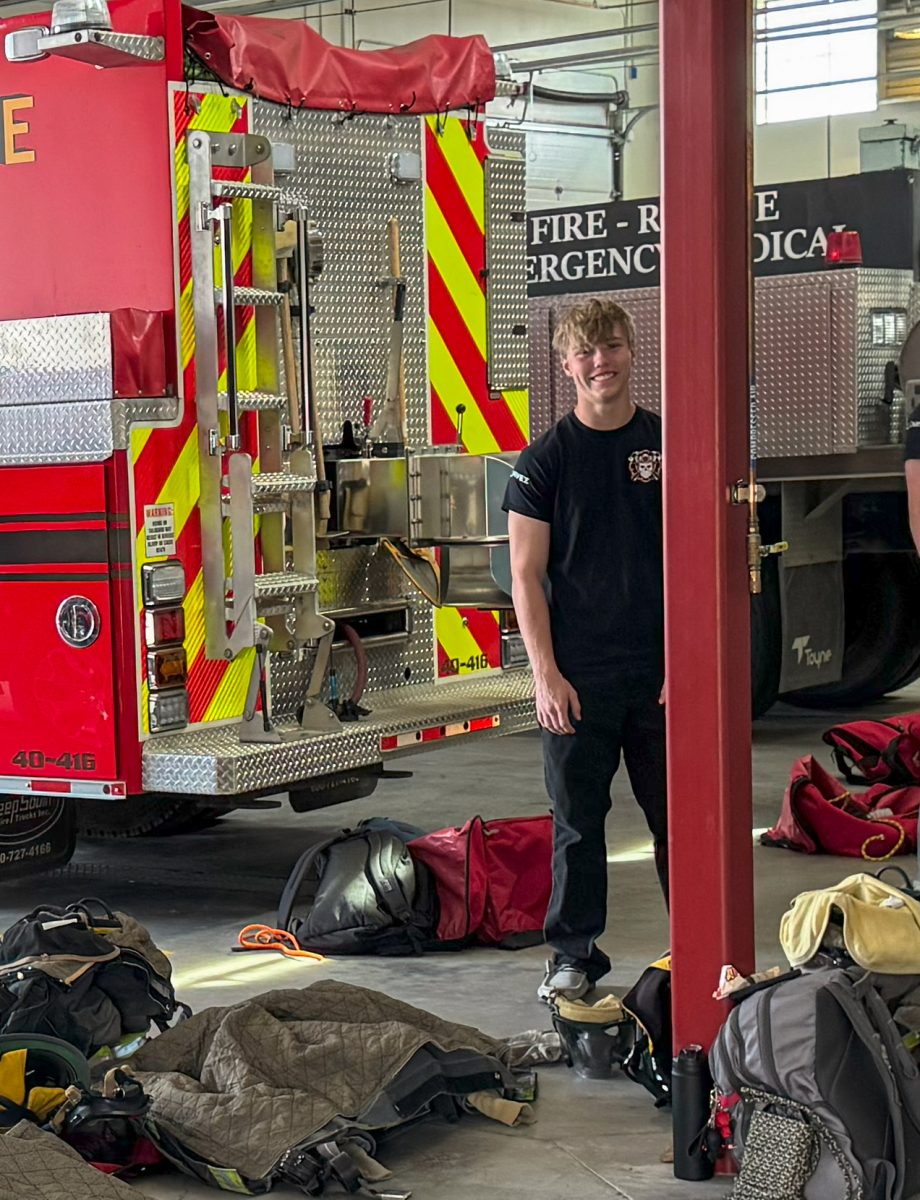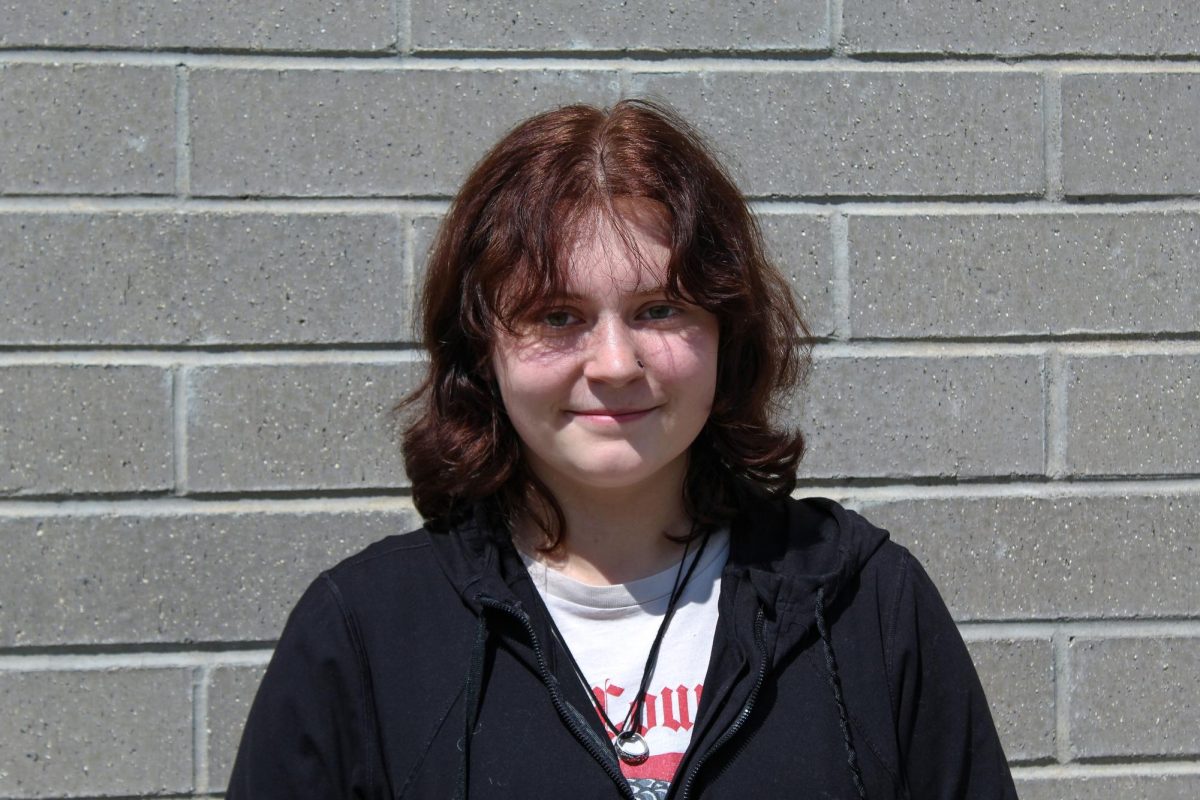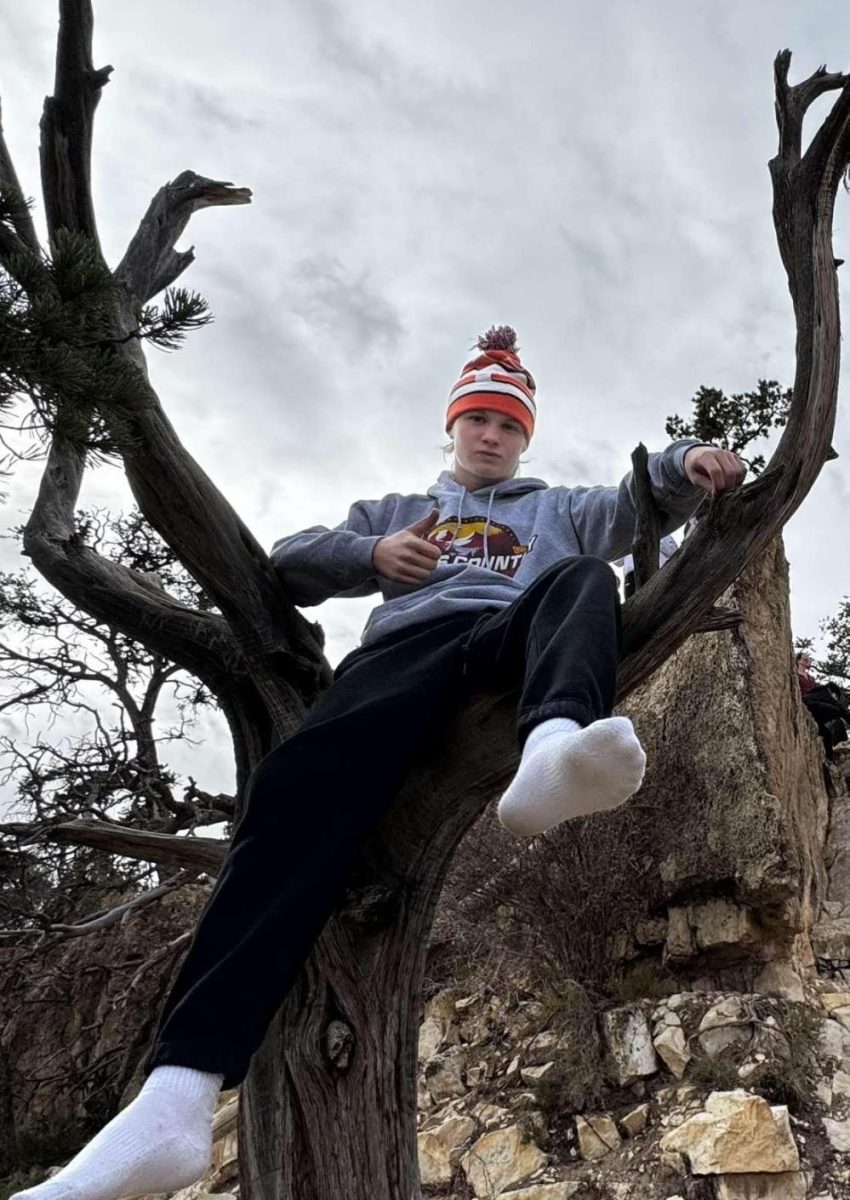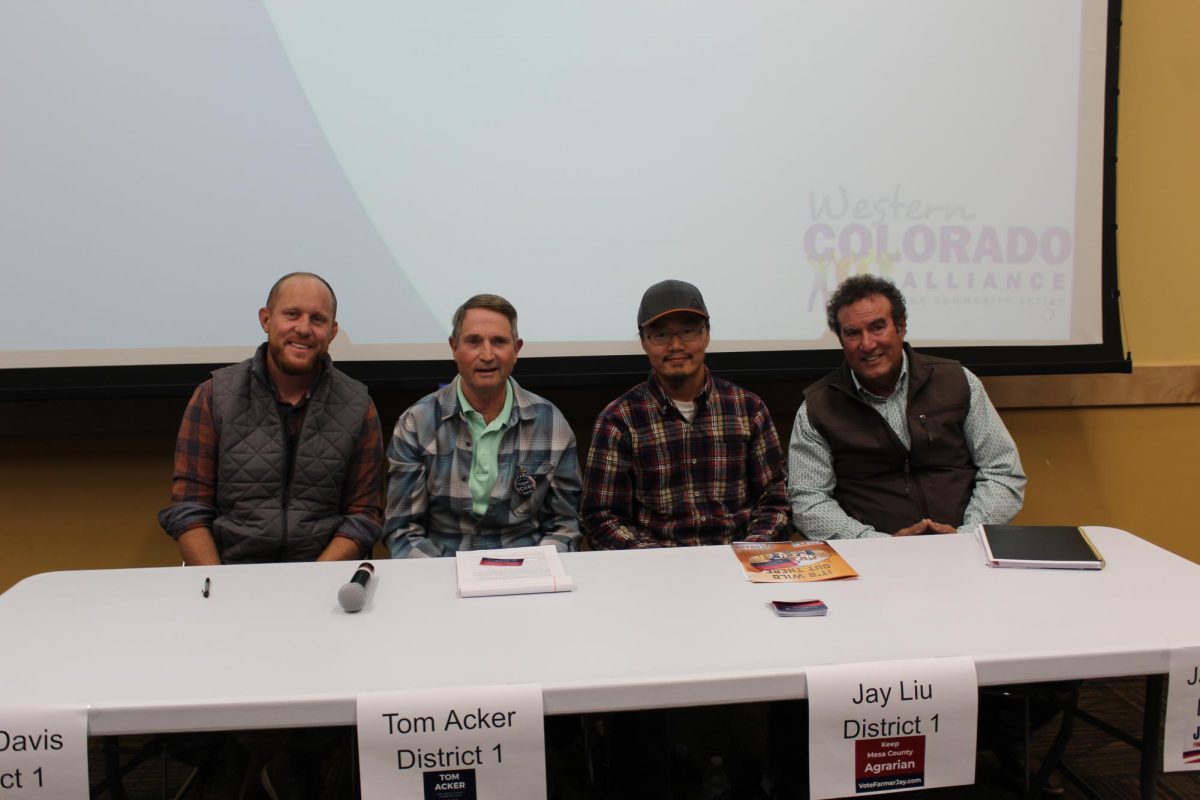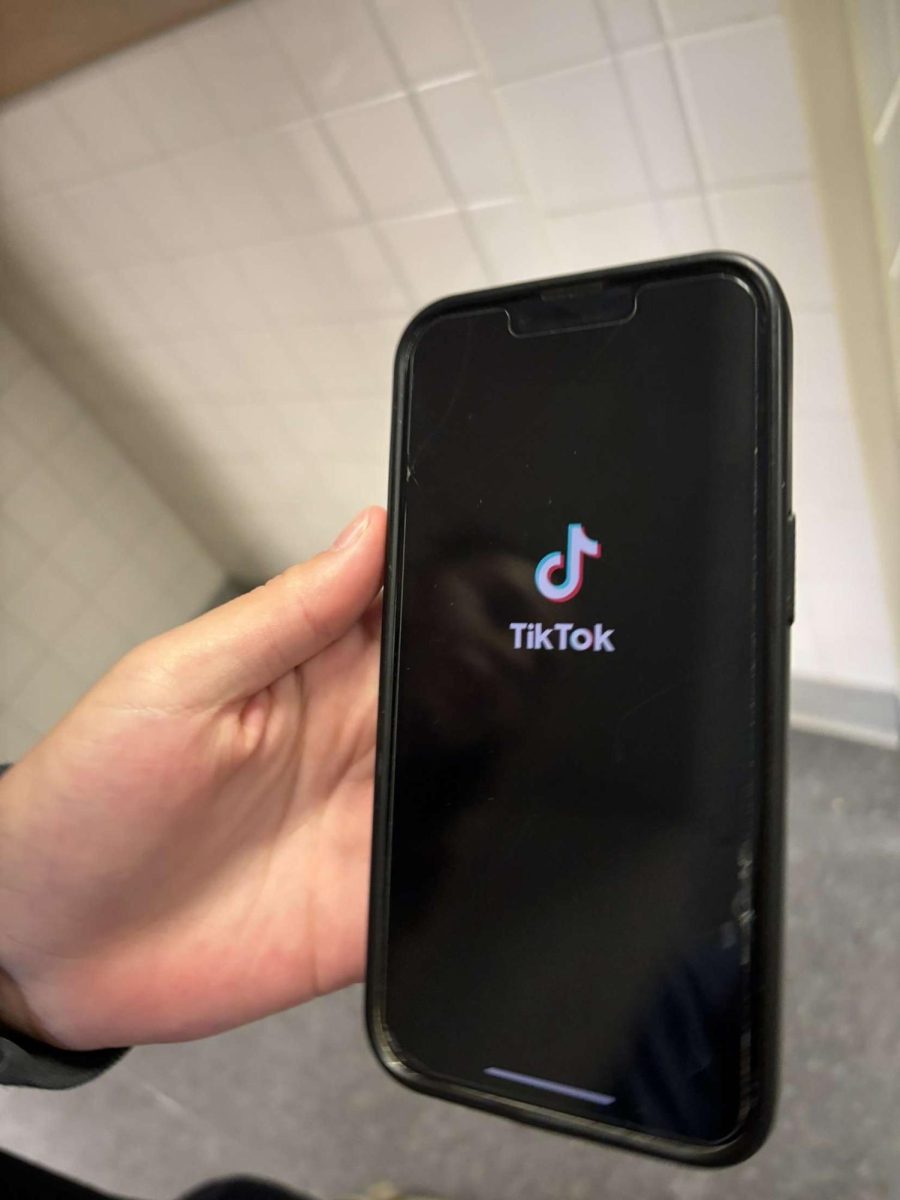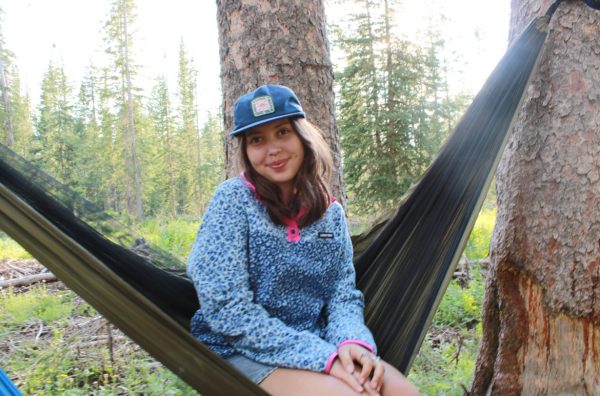Local elections deciding Grand Junction’s county commissioners will be determined this fall. There are three candidates including one write-in. On October 19th, Western Colorado Alliance (WCA), a local non-profit organization, held a public forum at the Mesa County Public Library for each candidate to vocalize their personal opinions and plans of action.
Several topics were discussed during the forum pertaining to problems most prevalent in Mesa County. Four questions were constructed ahead of time and presented by WCA committee heads and two Palisade students, Junior Annika Fitzgerald and Sophomore Lauren Spriggs, involved with West Slope Youth Voice, a student-led organization under WCA. These topics include food and agriculture, housing, energy, education, and youth mental health. Each candidate had roughly three minutes to answer, highlighting their perspectives, and allowing the public to gauge how they will vote in the upcoming election.
Cody Davis is the current county commissioner for District 1. Davis is a strong leader, specializing in business and prides familial bonds.
Tom Acker is running against Davis and is currently the only Democrat running for local office in Mesa County. Acker is a retired CMU Spanish professor and has worked tirelessly to elevate community awareness of human trafficking.
Jay Liu or ‘Farmer Jay’ is the third candidate for District 1 and is pursuing first generation farming, pushing his motto “Keep Mesa County Agrarian”. Ultimately, Liu amplifies farmers’ voices.
JJ Fletcher is running for county commissioner for District 3. Fletcher aims to prioritize behavioral health.
According to the first question; “What are your barriers to address preserving agricultural land and improving access and to new and existing farmers?” Acker approached this with proactivity. In order to keep the environment healthy and productive, there must be collaboration, the establishment of helpful projects, and an evolution of farmer support. Liu pushed for generational knowledge to be maintained with getting youth involved. Fletcher wanted to expand opportunities to repurpose land. Davis acknowledged the 29 Rd. interchange, invoking some groans from the audience. But, he believes that this transformation can help farmer’s sustain their land.
Question two asked for a goal to achieve renewable energy by 2050 and their ability to help Mesa County meet the potential challenges. Liu explained that he has no goal because “a lot can change in 20 years.” Liu also noted that materials for solar panels are unreliable and there is no exact way of knowing how renewable energy will present itself in the future. Fletcher provided an all above approach; utilizing solar, wind, and nuclear. Davis presented continued plans for updating buildings and intercounty relations to share and savor resources. Acker mentioned the implementation of solar and energy efficiency.
The third question addressed plans to lower poor mental health in high school students with rehabilitative services. Fletcher connected this with physical and behavioral health, saying youth should get outside and participate in holistic approaches such as Multi Agency Collaboration. Repeatedly, Fletcher mentioned veteran suicide rates, disregarding the youth emphasis of the posed question. Acker answered, “connecting with local youth” and basing plans on relevant trauma. Liu stuck to his agrarian perspective, explaining that “farming is the prescription to everything”, even faltering youth mental health. Similar to the other candidates, Davis believes that the outdoors is valuable towards improving youth mental health. Also, he believes that rehab services will keep people out of local prison, decreasing money to be spent on the jail and provide funding for these.
The final question: “What do you think the county’s role should be in tackling the housing crisis? What will you do as Commissioner to address it?” Davis wants the youth to afford to remain in the Western Slope, mentioning Proposition 123, stating communities’ right to funding from Colorado for housing. Acker also noted Prop. 123 and brought up several solutions such as grants, land banking, meetings with stakeholders (real estate developers, citizens, local government). Liu stated that housing issues stem from the government, claiming the county should detach from federal power. Fletcher provided emphasis on breaking down communication barriers and considering land to develop in.
Forum attendees were able to ask direct questions to the candidates, touching on the Orchard Mesa Pool and prioritizing affordable housing or the 29 Rd interchange. Most forums enforce fees, for the audience and the candidates. Each potential commissioner expressed their gratitude for this. Fletcher said, “It’s really meaningful to be able to represent everyone in our community. I want to be a voice for everybody but also a good listener. It’s a privilege to serve, I served in a private sector for many decades but this is really an honor to be able to serve the people of Mesa County.” The forum was completely free to the public, which is primarily uncommon. Acker notes, “My campaign members couldn’t come to the Chamber of Commerce or the Rotary for free. It’s very important that this happened and I thank WCA for holding this.”
WSYV head intern and Palisade Senior Mila Stephan concluded, “I would really like to see more young people there.” Junior Annika Fitzgerald added, “I would like to see a younger, diverse audience with younger candidates.”
Forums allow information to spread fairly and efficiently. Thanks to Western Colorado Alliance, each candidate vocalized their perspectives and priorities publicly. Voting is an important aspect of growing and improving communities. Vote on November 4th for who will best perform as Mesa County’s commissioner for the next four years.
